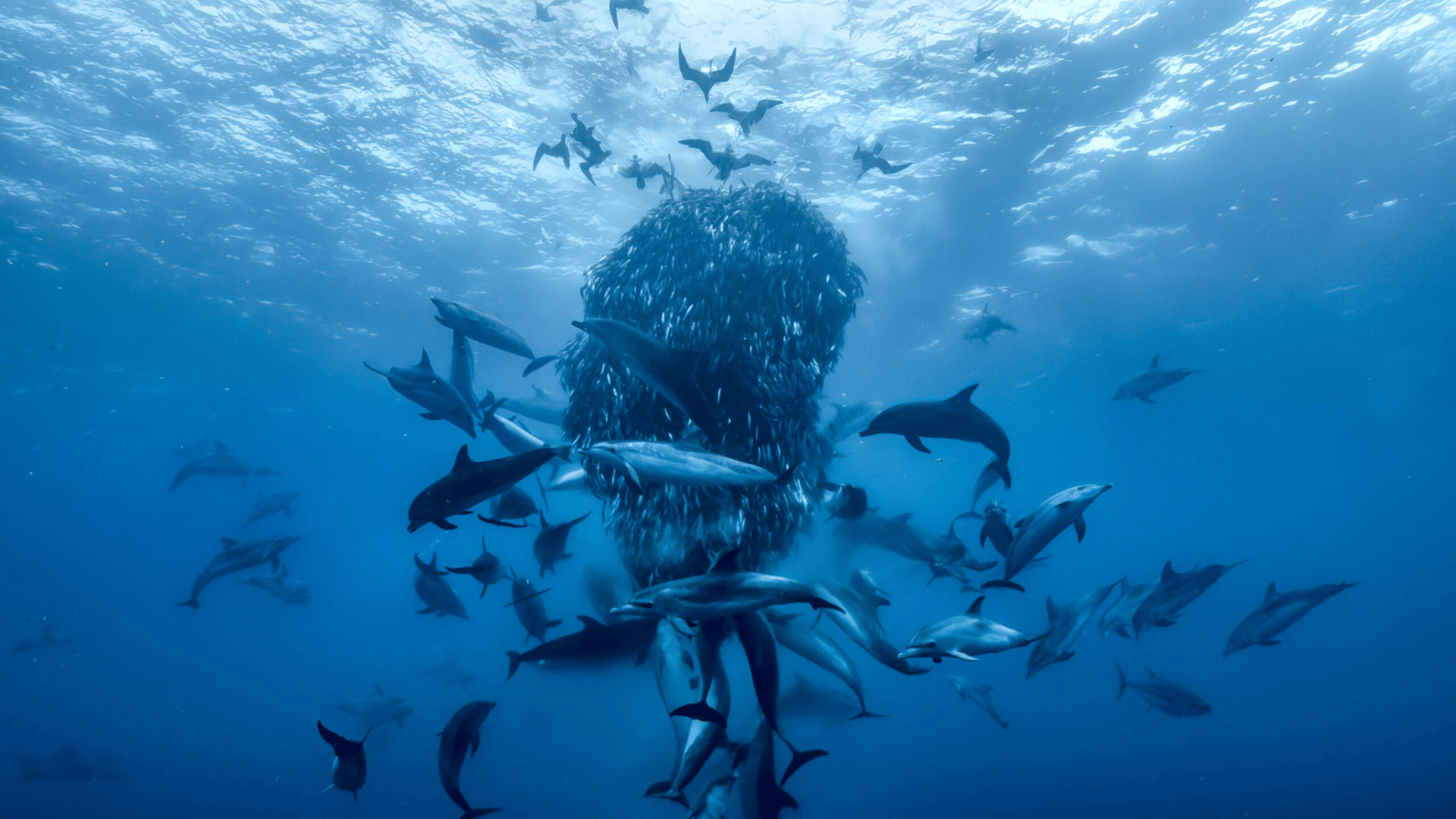When the AI Overlord eventually downloads my P45 directly into my brain, and I sit down on the dusty pavement at the end of the world to reflect on my career, a night with the Kings (one official, the other should be) will no doubt be very high up on the list of highlights.
How and why a Smarts team ended up on the red carpet for the premiere of ‘Ocean’, rubbing shoulders with the likes of Cara Delavigne, Theo James, and yes, King Charles himself, is a story for another day.
But getting a sneak peek of David Attenborough’s latest masterpiece (and the man himself!) was an absolute joy – if you can call a stark wake-up call for the planet a ‘joy’. The film is released on Disney+ and Hulu this week, to coincide with Attenborough’s 99th birthday, and I urge you all to watch it.
And as I sat with my popcorn and watched in horror as an army of sea urchins gobbled up an entire kelp forest, it also felt like a massive wake up call to anyone working in comms – particularly those prioritising sustainability in their marketing agenda – to consider how brilliantly the films takes one of the world’s most pressing issues and deftly evolves it from science to strategy to storytelling.
As someone who spends their day helping brands build Cultural Endurance – that is, enabling them to find their place in real world conversations by resonating with what matters to people in culture – there were a few takeaways in particular that really resonated.
Set the tone…
Shock tactics or arm around the shoulder? Whilst there may be no silver-bullet-tone-of-voice doc for sustainability comms, Ocean was a powerful reminder of how important it is to get the balance right. The film’s tone reflected that people are scared, but also recognised they may be tired of hearing the doom and gloom. It gave optimism and hope, but also countered that with a heavy dose of realism. It’s delicate and yet still too often we’re seeing initiatives – particularly led by brands that haven’t traditionally had sustainability at heart – where that’s not been thought about enough.
…And speak with authority
OK yes, it’s a little easier when you have Sir David Attenborough at the helm, a man with more credibility than there are Euphausia superba (or ‘krill’ to you and me) in the sea. But credibility is increasingly important as consumers wise up to greenwashing and unsubstantiated claims, whilst simultaneously being exhausted by brands preaching
towards them without anything new to say. Who can you align yourself with in the space – trustworthy, credibility partners – to ensure you’re not only able to strike the right tone mentioned above, but actually deliver it?
Balance data and creativity
Ocean is ultimately a story of scientific discovery. And the facts are terrifying. We heard at the Premiere of 2.9 million whales being killed by the whaling industry in the 20th century alone. Of how the trails of destruction left by trawlers can be seen from space. That should be enough for us all to sit up and take notice, right? We wish. What Attenborough and the production team here do brilliantly is sprinkle those insights with creativity, taking the raw information, developing a strategy and set of goals they want to achieve, and then working out how to tell an eye-catching story from it. Attenborough knows you can’t just throw facts at people, or expect them to immediately understand your purpose or why they should care. You need to find creatively stimulating ways to connect with them. Once you’ve seen the squid trying to escape the trawler net in Ocean, you’ll know what I mean.
Remain laser-focused
‘Say one thing and say it well’. Another strategist trope that’s only becomes a trope because brands keep forgetting to follow it. I loved that Ocean avoided casting its net too wide (pun well and truly intended). It was super clear from the off that the point being made wasn’t about stopping fishing completely or stopping the audience eating fish – because the team knew that simply wouldn’t land. They outlined in clear, pointed terms that the goal for both the fishing industry and the conservationists is the same: ‘more fish’. It’s so easy to tackle a big topic with such enthusiasm that the overall goal gets lost. Ocean never wavered and your marketing message shouldn’t either.
Sell in & Sell Out
With such an important message, it’s crucial that Ocean is landing it with all the right audiences. Which means selling in as well as selling out. Protecting large areas of the ocean as marine reserve will only happen with governmental-backed industry reform, so this film was a clear call to such influencers. But Attenborough and co know too well the need for pressure being applied from the wider public, too (hello, Disney+). With world leaders due to meet on the topic next year, this film is a powerful way to ensure the whole world is watching. It takes a smart strategy and deft execution to be able to influence both inwards and outwards, vital for all those working in sustainability comms.
Bundled together, these takeaways don’t just make for an awe-inspiring, powerful film. They present a tried-and-tested formula that we can all follow. A formula that has been powerful and persuasive enough to change government policies and permanently alter consumer behaviour. Blue Planet II led to new initiatives addressing plastic recycling and reducing waste, with 88% of viewers changing their behaviour around plastic, including a 60% increase in the use of reusable water bottles.
Those are the stats we’re all gunning for. And as brands move with the times to evolve their own sustainability measures, we could do worse things than take a lesson or two from the world’s ultimate teacher.
Natalie Moores is Brand Futures Director at Smarts
